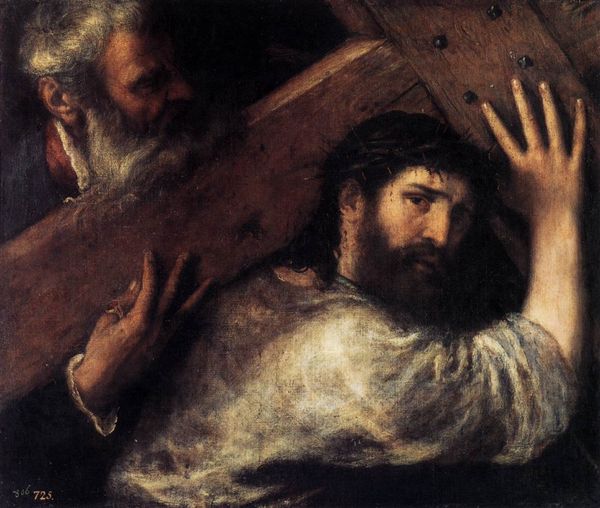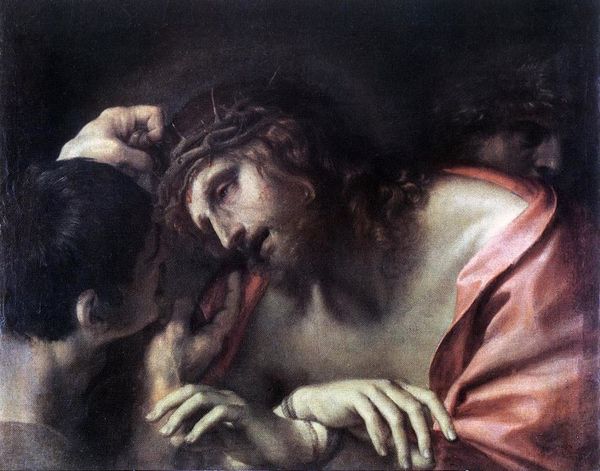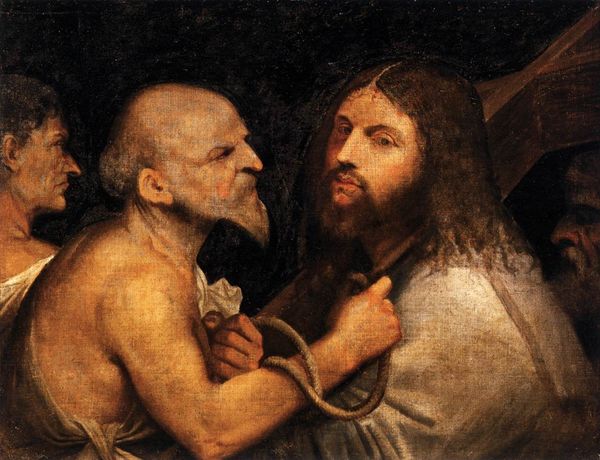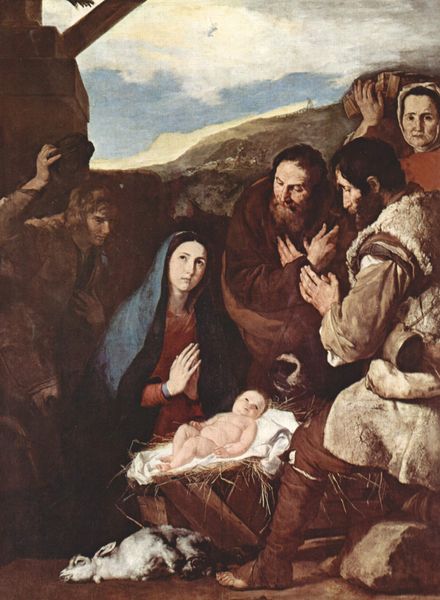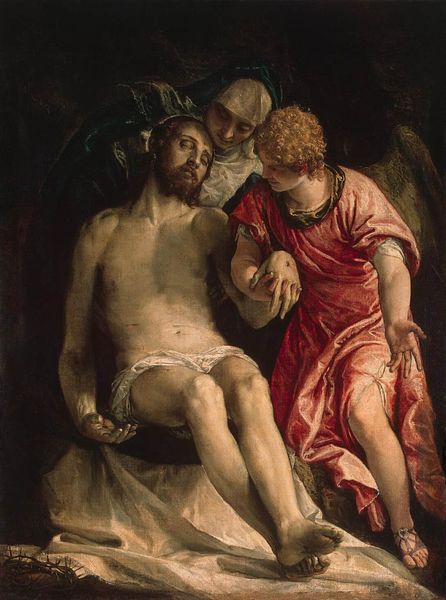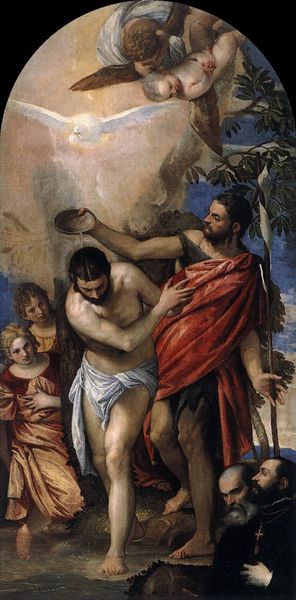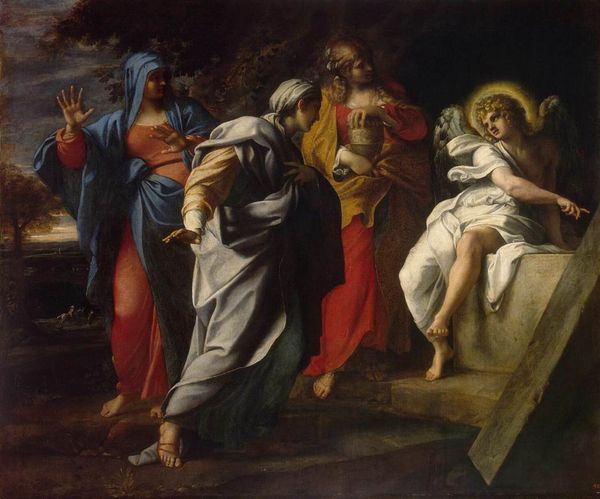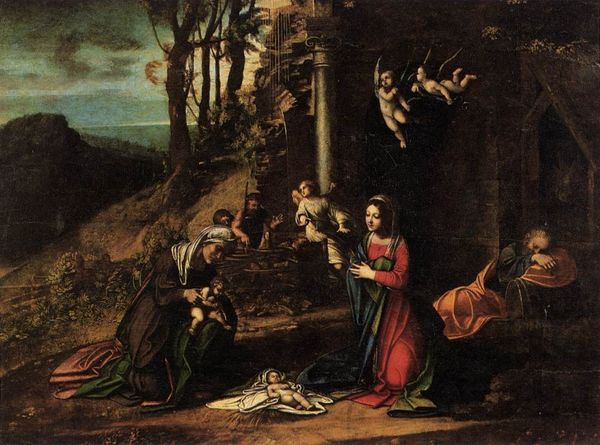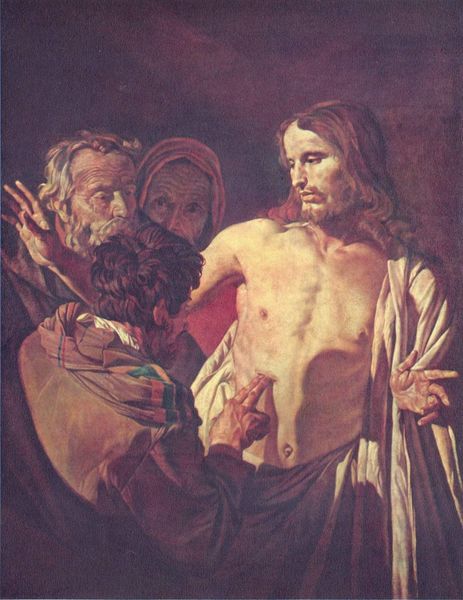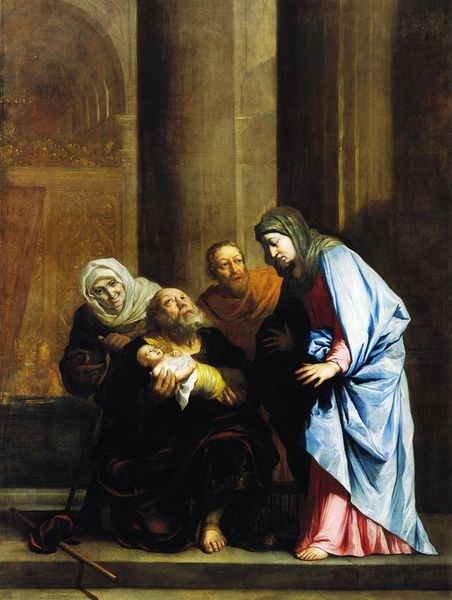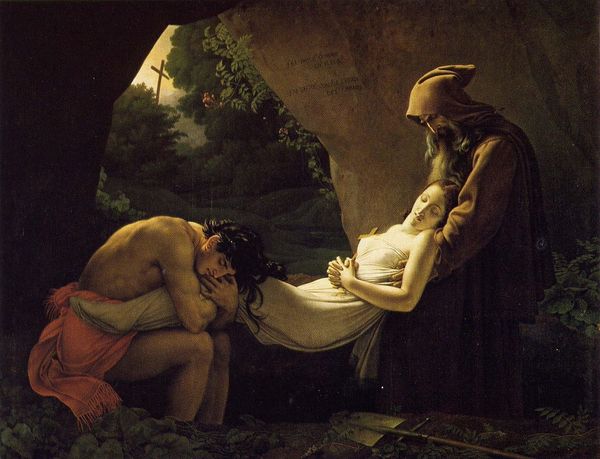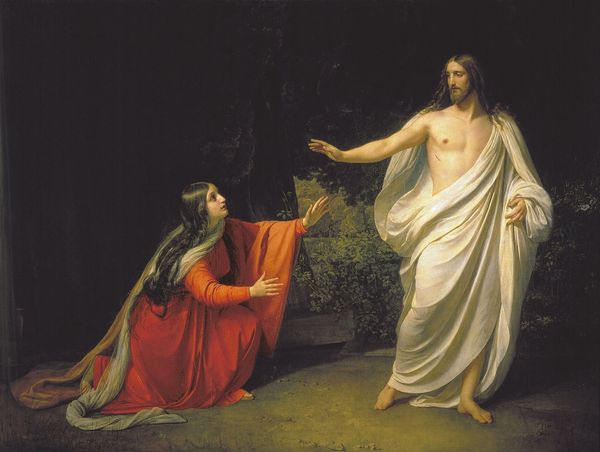
oil-paint
#
baroque
#
oil-paint
#
figuration
#
oil painting
#
history-painting
Dimensions: 119 x 178 cm
Copyright: Public domain
Editor: Here we have Anthony van Dyck's "Abraham and Isaac" from 1617, an oil painting depicting a weighty biblical scene. What immediately strikes me is the wood Isaac is carrying - it feels so palpable. What do you see in this piece? Curator: Well, I am immediately drawn to that same detail: the logs of wood. I see this as an indication of how much van Dyck's piece departs from others that depict this story in the art historical canon. Traditionally, these sorts of history paintings were opportunities to present the drama as almost a performance enacted in front of us, a grand spectacle for elites. This one has an altogether different quality. Consider the weight of that lumber - what kind of labor went into producing it? Where was it sourced, how did it get here, and what does it represent? Editor: That's interesting! I was just thinking about how realistically he painted the wood. Curator: Exactly! It is almost as though he wants the viewer to imagine the literal effort, the raw physicality, involved. And more, perhaps the cost: Isaac bears the tools of his own potential destruction in a landscape full of labor and difficulty, both present in the details. It makes one think differently about religious faith and its intersection with common work. Do you think that affects the painting's ultimate message? Editor: Definitely! The texture of the wood now makes me think about what was sacrificed to make it - and the labor involved, as you said, connects with larger ideas of value and sacrifice. It's less a theatrical performance and more about the real world costs. Thanks, I hadn't thought about it that way before! Curator: My pleasure. This sort of material analysis reveals a lot, I think. Considering where the wood was sourced opens another layer of possible interpretation that accounts for economy, production, labor, and social implications within the artist’s time.
Comments
No comments
Be the first to comment and join the conversation on the ultimate creative platform.
